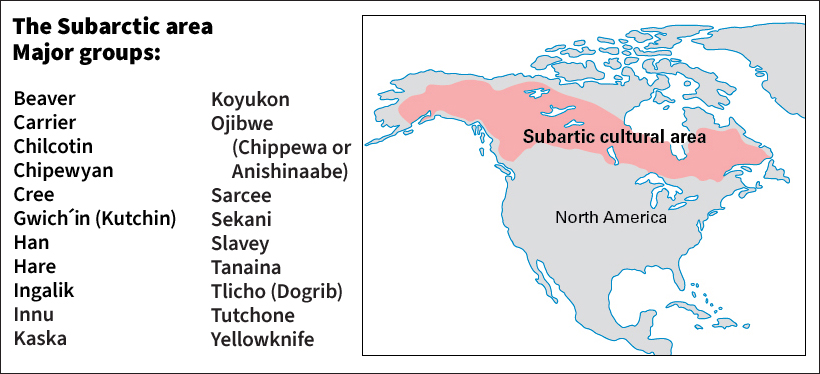Innu << IHN noo >> are a First Nations people of eastern Quebec and the Labrador Peninsula in Canada. First Nations is a designation used for indigenous (native) groups in Canada. They are sometimes called Montagnais << mahn tuh NYAY >> or Naskapi << NAS kuh pee >> . The name Montagnais comes from a French word meaning mountain people. French explorers gave the people this name, probably because of the rugged terrain of their land. The Montagnais use the term Naskapi to describe a related group who live farther north and speak a slightly different language. The name Innu means the people in both languages.

In the past, Innu bands moved seasonally in search of game. The Naskapi Innu hunted caribou on the plains. The Montagnais Innu hunted caribou and moose in the forested regions farther south. In spring and summer, fish and small game provided food for the tribe. The Innu owned few material goods. Nearly all their possessions consisted of tools, weapons, and utensils used to catch and prepare food. In winter, they lived in lodges built partly underground. Their summer homes were cone-shaped tents covered with skins or bark.
Today, many Innu continue to rely on hunting and fishing to make a living. Tens of thousands of Montagnais and Naskapi Innu live in Quebec and Newfoundland and Labrador. Many Naskapi Innu moved to the coast in the early 1900’s because of a decline in the number of caribou. There, they live by mainly fishing and hunting seals. In 2003, the Canadian government moved about 700 Naskapi Innu from Davis Inlet on the northeast coast of Labrador to a new settlement called Natuashish nearby. Hunting caribou remains an important economic activity for many Naskapi Innu.
